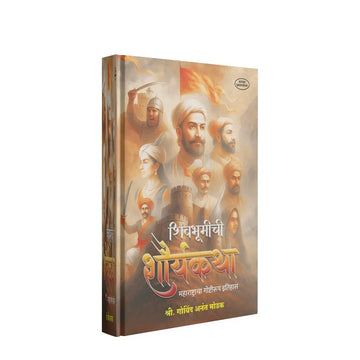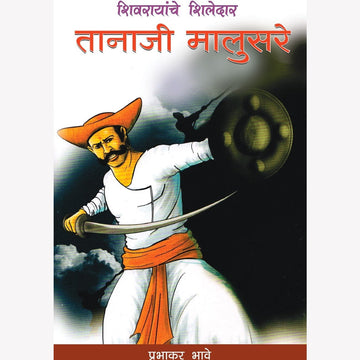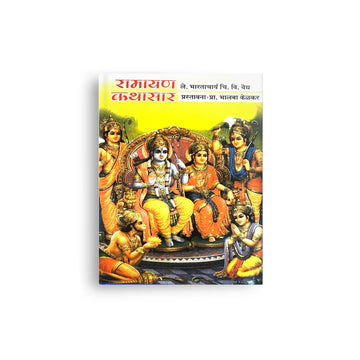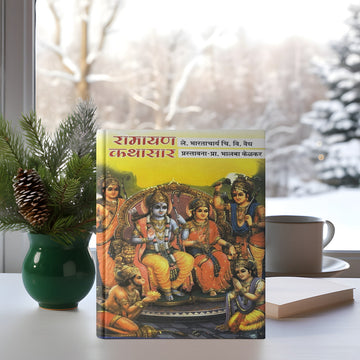Shahaji Maharaj to the End of Peshwai – The Turning Points That Shaped Maharashtra’s History
Oct 27, 2025
The history of Maharashtra is intricately woven with the tales of bravery, valor, and unwavering determination of the Maratha Empire. At the heart of this rich tapestry lies the captivating story of Chhatrapati Shivaji Maharaj, a visionary leader who carved out a kingdom from the ashes of the Deccan Sultanates and laid the foundation for the Maratha Swarajya.
The Rise of the Maratha Empire
The Maratha Empire's origins can be traced back to the early 17th century, when Shahaji Raje Bhosale, a prominent military leader, laid the groundwork for the future Maratha dominance. His son, Chhatrapati Shivaji Maharaj, would go on to become one of the most revered figures in Indian history, known for his strategic brilliance, military prowess, and unwavering commitment to the cause of Swarajya (self-rule).
Shivaji Maharaj's early life was marked by a series of daring exploits and bold maneuvers that laid the foundation for the Maratha Empire. From his childhood, he was imbued with a deep sense of patriotism and a burning desire to free his people from the oppressive rule of the Mughal Empire. Through a combination of guerrilla tactics, diplomatic acumen, and sheer determination, Shivaji Maharaj gradually carved out a kingdom that would eventually challenge the might of the Mughals and other regional powers.
The Coronation of Chhatrapati Shivaji Maharaj
One of the most significant events in the history of the Maratha Empire was the coronation of Chhatrapati Shivaji Maharaj in 1674. This momentous occasion marked the formal establishment of the Maratha Swarajya and the ascension of Shivaji Maharaj as the sovereign ruler of the Maratha domains. The coronation ceremony was a grand affair, attended by dignitaries from across the region and celebrated with great pomp and splendor.
The coronation of Shivaji Maharaj was more than just a symbolic gesture; it was a bold declaration of the Maratha's right to self-governance and a defiant challenge to the Mughal Empire's hegemony. Shivaji Maharaj's coronation was a testament to his political acumen and his ability to navigate the complex web of regional alliances and power dynamics.
The Expansion of the Maratha Empire
Following his coronation, Chhatrapati Shivaji Maharaj embarked on a series of military campaigns that would expand the Maratha domains and solidify their position as a formidable power in the Deccan region. Through a combination of strategic alliances, shrewd diplomacy, and relentless military campaigns, Shivaji Maharaj managed to wrest control of vast swathes of territory from the Mughals and other regional powers.
One of the key factors that contributed to the Maratha Empire's success was its innovative military tactics. Shivaji Maharaj's forces were known for their mobility, their ability to strike quickly and retreat, and their use of guerrilla warfare techniques. This approach allowed the Marathas to overcome the numerical superiority of their opponents and achieve remarkable victories against the Mughals and other adversaries.
The Reign of Chhatrapati Sambhaji Maharaj
After the passing of Chhatrapati Shivaji Maharaj, the Maratha Empire faced a period of uncertainty and turmoil. However, the mantle of leadership was taken up by Shivaji Maharaj's son, Chhatrapati Sambhaji Maharaj, who proved to be a worthy successor to his father's legacy.
Sambhaji Maharaj's reign was marked by a series of military campaigns and diplomatic maneuverings that sought to consolidate the Maratha Empire's hold over the Deccan region. Despite facing formidable challenges from the Mughals and other regional powers, Sambhaji Maharaj demonstrated the same strategic acumen and military prowess that had characterized his father's reign.
The Peshwai Era and the Decline of the Maratha Empire
Following the death of Chhatrapati Sambhaji Maharaj, the Maratha Empire entered a new phase, marked by the rise of the Peshwas – the hereditary prime ministers who would come to wield significant power and influence within the Maratha domains.
The Peshwai era saw the Maratha Empire reach the zenith of its power and influence, with the Peshwas leading the Marathas in a series of military campaigns that expanded their dominion across much of the Indian subcontinent. However, this period also witnessed the gradual erosion of the Maratha's centralized authority, as the Peshwas and other regional chieftains vied for power and influence.
The decline of the Maratha Empire was further accelerated by the series of conflicts known as the British-Maratha Wars, which pitted the Marathas against the ever-expanding British East India Company. Despite the Marathas' valiant efforts, the superior resources and military might of the British ultimately proved too much to overcome, and the Maratha Empire was gradually reduced to a shadow of its former self.
The Legacy of the Maratha Empire
The Maratha Empire's legacy continues to resonate in the annals of Indian history, serving as a testament to the indomitable spirit and unwavering determination of the Marathi people. The tales of Chhatrapati Shivaji Maharaj's exploits, the military prowess of the Maratha forces, and the political machinations of the Peshwa era have captivated the imagination of generations of Indians, inspiring a deep sense of pride and reverence for the Maratha legacy.
Today, the Maratha Empire's influence can be seen in the rich cultural heritage of Maharashtra, the enduring popularity of Marathi literature and art, and the continued veneration of Chhatrapati Shivaji Maharaj as a revered figure in the pantheon of Indian heroes. The Shivbhumichi Shauryakatha – the epic story of the Maratha Empire – continues to be a source of inspiration and a reminder of the power of unity, courage, and self-determination in the face of adversity.
As we delve deeper into the annals of Maratha history, we are reminded of the timeless lessons of leadership, strategy, and the unwavering pursuit of freedom that defined the Maratha Empire's rise and eventual decline. The Shivbhumichi Shauryakatha stands as a testament to the enduring spirit of the Marathi people and the enduring legacy of one of India's most remarkable empires.




